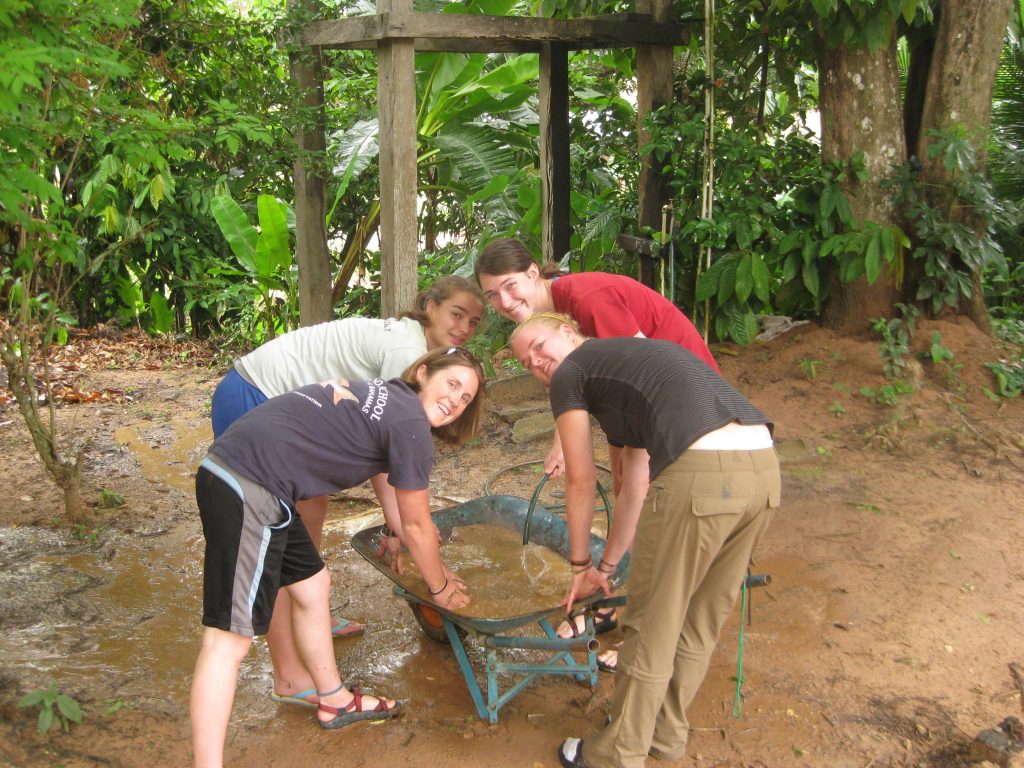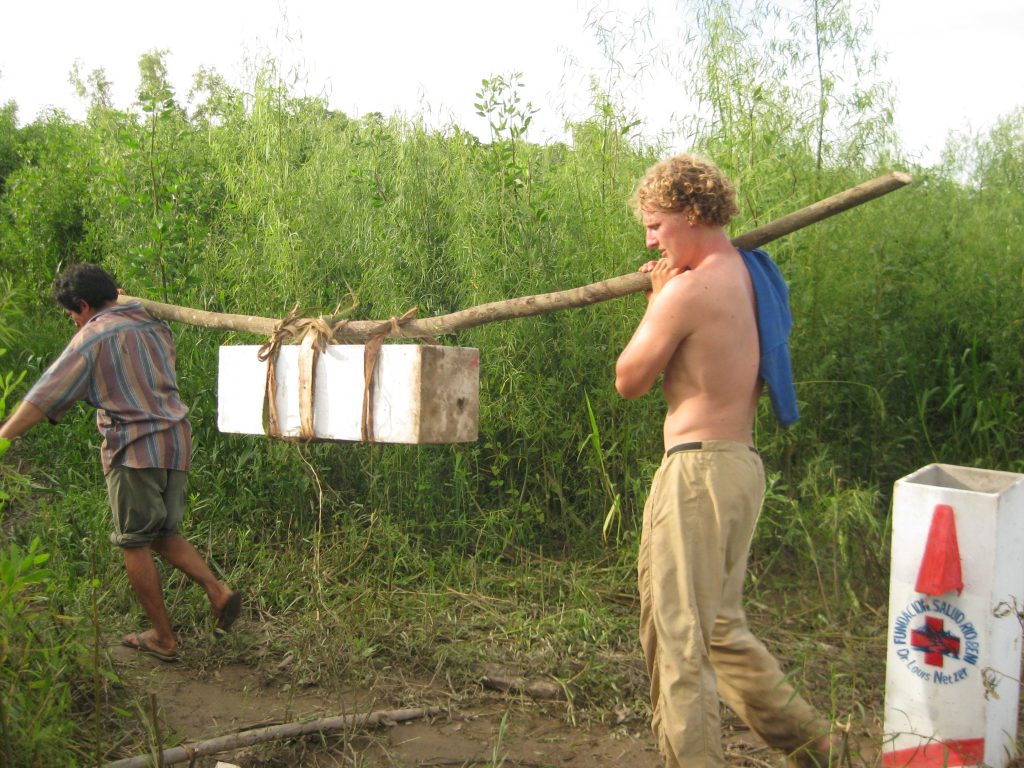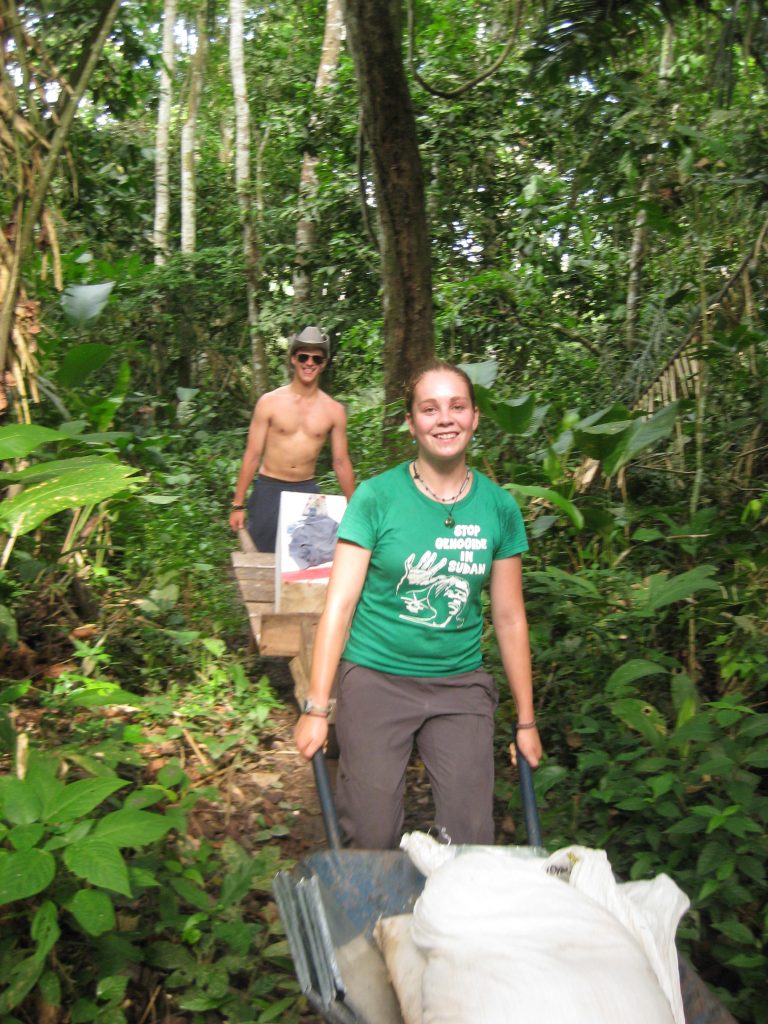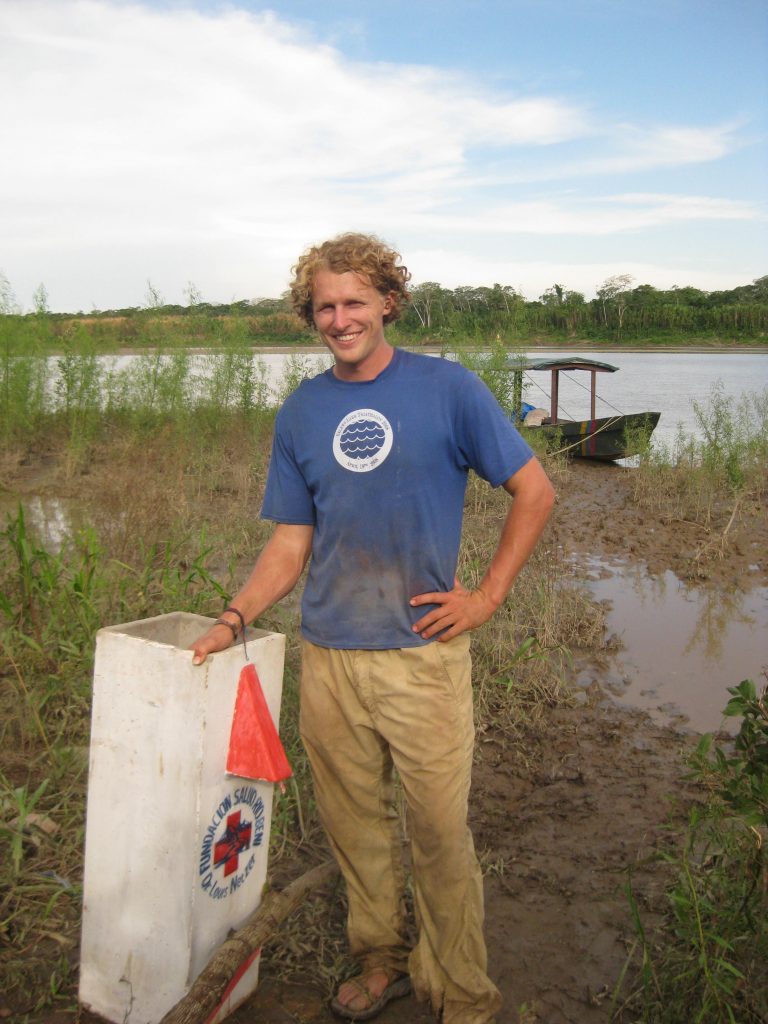To read the beginning post on this project, CLICK HERE.
We are happy to report on the successful completion of this project by Returned Peace Corps Volunteer (RPCV) Helen Rortvedt. As our first project let by an RPCV, it has proven the validity of the concept, and promises to lead the way to future projects.
This project was carried out under Helen’s direction by participants in the Where There Be Dragons 13-week Andes and Amazon course for students of ages 17 to 22.
Helen reports:
Overall, our water filter project was a huge success. We arrived in Rurrenabaque (tired and bug bitten, but happy) from our trek down the Camino de Oro. We descended from about 17,000 feet into the lush Bolivian Amazon Basin over the course of four days. From the mining town of Guanay, we proceeded by boat for two days down the Mapiri and Beni rivers (and Madidi National Park) to arrive in Rurre late in the afternoon on November 2nd.
Our first full day in town brought us to the clinic of the Rio Beni Health Project. One branch of the mission of the Health Project is to provide access to subsidized, affordable health care to under-served patients both in the town of Rurre and in the small communities up and down river from town. Another branch of the Project’s mission is to provide health and sanitation education and support to the same communities.
After a brief introduction to the Health Project staff, we got to work sifting and washing sand, mixing and pouring cement and eventually painting the filters to prepare them for transport.
Since 2007, the Rio Beni Health Project has been building and distributing bio-sand water filters throughout the region. They have had great success with the filters so far. The materials are cheap and locally available. The installation and maintenance of the filters is very simple. A well maintained filter can last well over ten years without having to change the sand. The maintenance of the filter consists of making sure it is used once every couple of days, and if the flow slows down, manually mixing around the top few centimeters of sand to loosen up any sediment or silt build up.
Our contribution to the Rio Beni Health Project’s longer ongoing efforts may have seemed at first like a small drop in the bucket. However, I believe that once we arrived in the recipient community, Tres Hermanos, and saw the quality of water they were drinking from the local stream, we all realized the impact we were having.
The community of Tres Hermanos lies about an hour down river from Rurre, and about a 30 minute hike down a very narrow jungle path. The community consists of twelve subsistence farming families and a schoolhouse. There are eleven children in the school, and one teacher teaches all subjects up until grade six. We delivered and installed filters for seven families and the schoolhouse. It should be noted that the Health Project sells the filters to the families in their service-area communities at a subsidized cost, so as to encourage ownership and responsibility for the maintenance of the filters. They are sold to communities for 70 bolivianos, or, about ten dollars. The cost of making each filter is 130 bolivianos, and they are sold to people in Rurre for 250 as an income generating method for the Project.
It turns out that transporting the filters is not only the most costly, but oftentimes the most difficult part of the process. Joselo Hurtado, the administrator of the Rio Beni Health Project has been hoping to deliver the filters to the community of Tres Hermanos for nearly six months, but has been unable to due to the difficulty of transporting the filters (each weighing about 100 pounds before the sand is added) down river and then down the trail without extra help.
Funds from Water Charity were used for building the filters and transporting them to the community (fuel, boat rental).
Helen reflects on the project in the context of the course:
On a personal level, this project was absolutely the highlight of the semester for me. Seeing the construction and installation of the filters from start to finish, connecting with the community members of Tres Hermanos and drinking clean filtered water with them was extremely rewarding.
The students reported on the meaningful experience they had in participating in such a worthwhile endeavor. Annie Denenber, one of the students, wrote:
“going back on the boat I was imagining a scenario in which one kid didn’t sick that year, didnt have diahrea and get really dehydrated. but instead, he was healthy, and could go to school every day that month..and could focus on learning about math and dreaming abut someday going to college to maybe become an engineer. that was just one tiny though i had, but i saw that it was a real possibility, a real change, and im glad i got to be even just a small part of that.”


Your donation in any amount for this project, and those projects led by Helen Rortvedt and her compatriots in Bolivia which are to come, will be greatly appreciated. Please CLICK HERE and use the Donate button on the project page for your donation to be attributed to this project.

